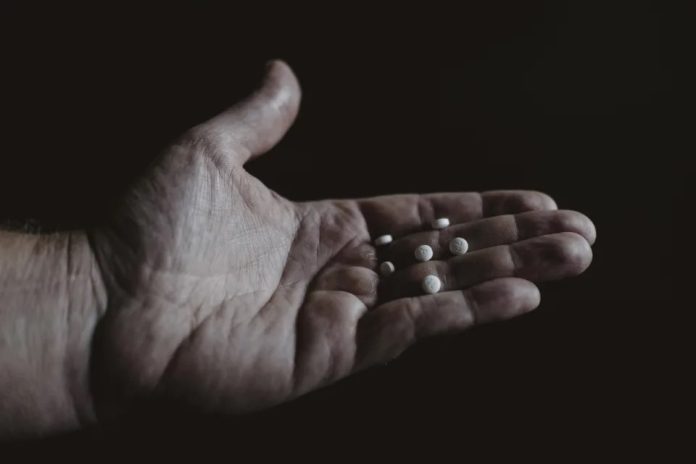Do you want to slow down ageing skin? Do you want to keep fit as your age advances? Do you desire to live for as long as possible? Well, a drug is being touted as the magical ‘fountain of youth’.
Rapamycin has gained a large following, thanks to longevity researchers and celebrity doctors who, citing animal studies, contend that the medicine could be a game changer in the quest to fend off age-related diseases.
Rapamycin – first discovered in the 1970s in bacteria found in the soil of Easter Island [in Chile] – also reduces stress in the cell by attacking cancer-causing free radicals in the mitochondria.
In previous studies, the team used Rapamycin in cell cultures, which reportedly improved cell function and slowed aging.
The drug is going mainstream as an anti-ageing treatment, even though its regulatory approval is for treating transplant patients.
A study found that rapamycin extended the lives of elderly mice by as much as 14%, the first time a drug had been shown to help a mammal live longer
According to scientific journal, The Lancet, Rapamycin and its derivatives are “approved for use in anti-cancer therapies, rejection prophylaxis after organ transplant, drug-eluting coronary stents, and the treatment of tuberous sclerosis and lymphangioleiomyomatosis (LAM) — a rare, progressive lung disease that causes abnormal cysts to grow in the lungs, lymph nodes and kidneys and mostly affects women of childbearing age.
A study in 2009 found that rapamycin extended the lives of elderly mice by as much as 14 percent, the first time a drug had been shown to help a mammal live longer. Then in 2014, researchers had a revelation: Older adults who took a rapamycin-like drug had a more robust response to the flu vaccine, upending the widely held notion that rapamycin weakened the immune system.
Researchers have found that Rapamycin can modify a kind of cellular communications system that gives cells certain directions — to grow when the body has plenty of food and to slow down when nutrients are scarce. The drug can dial down the signal to grow, causing cells to clear out accumulated junk and allowing them to run more efficiently.
Indeed, Rapamycin may also slow aging in human skin, according to a 2019 study from Drexel University College of Medicine researchers published in Geroscience.
Basic science studies have previously used the drug to slow aging in mice, flies, and worms, but the current study is the first to show an effect on ageing in human tissue, specifically skin – in which signs of ageing were reduced.
After topical application of Rapamycin on humans, signs of ageing were reduced. Changes include decreases in wrinkles, reduced sagging and more even skin tone
“Changes include decreases in wrinkles, reduced sagging and more even skin tone — when delivered topically to humans,” says senior author Dr. Christian Sell, an associate professor of Biochemistry and Molecular Biology at the College of Medicine.
“So, we said, let’s try skin. It’s a complex organism with immune, nerve cells, stem cells – you can learn a lot about the biology of a drug and the aging process by looking at skin.”
In the Drexel-led study, 13 participants over age 40 applied rapamycin cream every 1-2 days to one hand and a placebo to the other hand for eight months. The researchers checked on subjects after two, four, six and eight months, including conducting a blood test and a biopsy at the six- or eight-month mark.
After eight months, the majority of the rapamycin hands showed increases in collagen protein, and statistically significant lower levels of p16 protein, a key marker of skin cell aging.
Skin that has lower levels of p16 has fewer senescent cells, which are associated with skin wrinkles. Beyond cosmetic effects, higher levels of p16 can lead to dermal atrophy, a common condition in seniors, which is associated with fragile skin that tears easily, slow healing after cuts and increased risk of infection or complications after an injury.
Despite the buzz surrounding the drug, it is unlikely that the Food and Drug Administration will ever approve it for longevity, though.
Rapamycin’s promise as a longevity drug remains divisive among scientists and longevity influencers
The agency doesn’t consider ageing to be a disease, and Rapamycin’s generic status means there’s little financial incentive to run expensive clinical trials to test it on age-related afflictions.
So, doctors and entrepreneurs are increasingly marketing Rapamycin beyond the scope of its regulatory label, believing a potentially life-extending drug is effectively hiding in plain sight.
Caution
Rapamycin’s promise as a longevity drug, however, remains divisive among scientists and longevity influencers.
The enthusiasm for the drug’s anti-aging properties comes from studies that repeatedly have shown benefits in animals across multiple species, including yeast, worms and mice.
Some physicians and researchers believe that if taken intermittently and in low doses, rapamycin can increase human life span the way it has in animal trials.
But doctors also caution that no one knows what the optimal dose might be for humans, and taking certain quantities of Rapamycin can lead to reproductive harm and insulin resistance as well as making the body more susceptible to infection.


